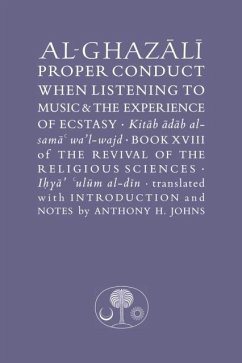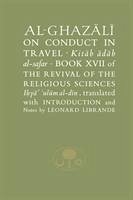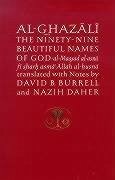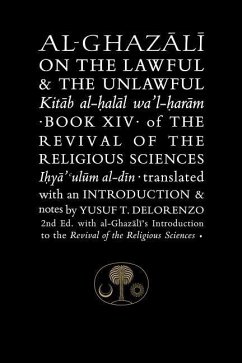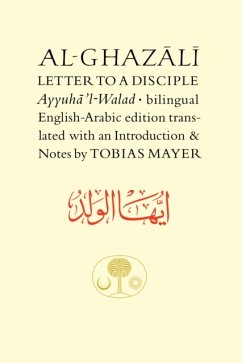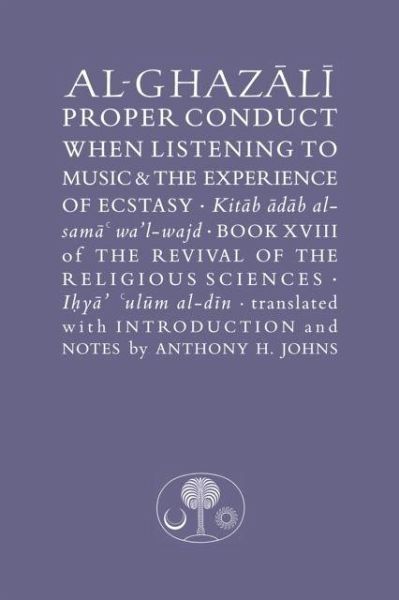
Al-Ghazali on Proper Conduct when Listening to Music and the Experience of Ecstasy
Book XVIII of the Revival of the Religious Sciences
Übersetzer: Johns, Anthony H.
Versandkostenfrei!
Versandfertig in über 4 Wochen
35,99 €
inkl. MwSt.
Weitere Ausgaben:

PAYBACK Punkte
18 °P sammeln!
Al-Ghazali on Proper Conduct when Listening to Music and the Experience of Ecstasy is the eighteen chapter of the Revival of the Religious Sciences ( Ihya'' ''ulum al-din), a monumental work of classical Islam written by the renowned theologian-mystic Abu Hamid al-Ghazali (d. 1111). This chapter of the Revival deals with the controversial topic of music. In the Islamic legal tradition, there is disagreement as to whether or not performing and listening to music is lawful, even more, whether music might be used as a path to ecstasy. Basing himself on the Qur'an, hadith, the first generations of...
Al-Ghazali on Proper Conduct when Listening to Music and the Experience of Ecstasy is the eighteen chapter of the Revival of the Religious Sciences ( Ihya'' ''ulum al-din), a monumental work of classical Islam written by the renowned theologian-mystic Abu Hamid al-Ghazali (d. 1111). This chapter of the Revival deals with the controversial topic of music. In the Islamic legal tradition, there is disagreement as to whether or not performing and listening to music is lawful, even more, whether music might be used as a path to ecstasy. Basing himself on the Qur'an, hadith, the first generations of Muslims and the mystical tradition, Ghazali presents the arguments both for and against listening to music. Ghazali''s own position is that music in itself is permissible, though under certain circumstances it can be unlawful or undesirable. Ghazali gives lyrical expression to his love of poetry and music, and their legitimate place not only in human celebrations, but in divine worship and as aids on the path to gnosis and ecstasy. All such responses he sees exemplified in the life of the Prophet with his family.



